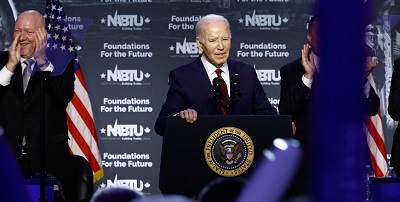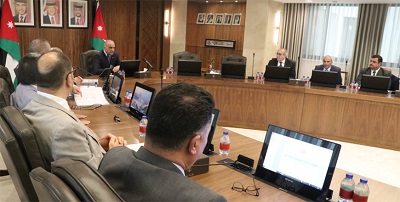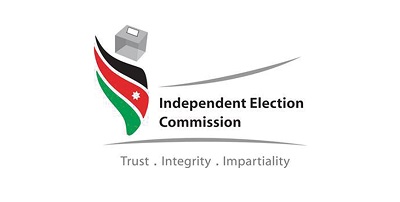The dynamics of aid during a pandemic - By Wissam Rabadi, The Jordan Times
With donor countries across the world looking inwards to help mitigate the effects of COVID-19 on their own systems, how can we ensure that aid levels continue to support critical development agendas and at the same time help the most vulnerable communities who were hit the hardest?
Across the globe we see different countries at different stages of the pandemic depending on the context of the country and how hard the virus is affecting it. Nonetheless, one truth remains, this is the largest economic shock the world has experienced in years. The immediate outlook is bleak and partially out of our control, but the longer-term damage is something that we must work together globally to alleviate, we are not yet sure if this is a long winter or a new ice age.
Many of our friends in the international community have thankfully responded to pressing needs both here in Jordan and across the world in order to protect vulnerable groups and those who have been most impacted by the crisis, including 1.3 million Syrian refugees. These urgent funding allocations are extremely necessary with the pandemic continuing to place enormous pressures on our health and education systems, food supply chains and border controls.
This support is also interdependent to longer-term developmental support that funds holistic efforts with regards to sustainable economic growth, governance and rule of law, and other vital areas. Development builds resilience and helps better prepare economies and societies to withstand external shocks. Emerging markets and developing countries need to continue to strengthen their systems and implement reforms to support strong and sustainable growth and set the stage for long lasting recovery.
The challenge is, again, to ensure that the scale and scope of funding is sufficient for both crisis response and long-term development. While some may argue that current challenges call for a reduction in foreign aid budgets, it is in fact increased international coordination and cooperation, including global solidarity — that will provide us with the best chance of recovery. As the secretary general of the United Nations put it ‘In an interconnected world, none of us is safe, until all of us are safe.
The writer is Jordan’s minister of planning and international cooperation
Latest News
 'Sinwar Above Ground': Hamas official's revelation shocks Israeli Occupation
'Sinwar Above Ground': Hamas official's revelation shocks Israeli Occupation US president signs bill to provide new aid for Ukraine
US president signs bill to provide new aid for Ukraine Prime minister directs government to support IEC ahead of upcoming elections
Prime minister directs government to support IEC ahead of upcoming elections Parliamentary elections for 20th Lower House to be held on September 10 – IEC
Parliamentary elections for 20th Lower House to be held on September 10 – IEC Amman Chamber of Commerce says GDP grows by 4.4% in 2023
Amman Chamber of Commerce says GDP grows by 4.4% in 2023
Most Read Articles
- More than 100 arrested at US university pro-Palestinian protests
- King, French president discuss regional developments
- Senior Hamas official says movement is “awaiting response” in ceasefire negotiations
- Irish foreign minister visits Palestinian refugee camp in Amman, vows support to UNRWA
- Jordan remembers Queen Zein
- Ahead of feared Rafah invasion, Palestinians mourn bombardment dead
- US says downed Houthi anti-ship missile, four drones
- JAF carries out six more airdrops of aid into Gaza
- Hizbollah denies Israel claim it killed half of commanders in south
- Sharing the tech wealth - By Diane Coyle, The Jordan Times